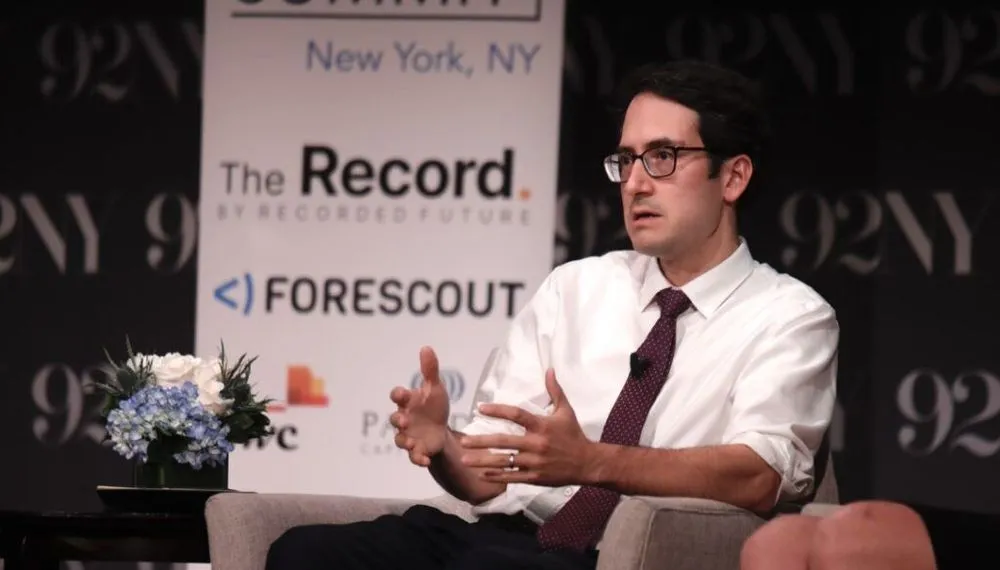FTC Meta probe reveals tensions over agency role in regulating kids’ data
The Federal Trade Commission’s Alvaro Bedoya has been savaged by progressive tech policy advocates in recent weeks for expressing concern about the agency’s recent decision to revive a case against Meta for privacy violations tied to the Cambridge Analytica scandal.
Bedoya, one of three commissioners at the agency, recently questioned the FTC’s legal standing to unilaterally bar Meta from monetizing the data of children under 18. The Children's Online Privacy Protection Act, or COPPA, only protects the data of children under age 13. Bedoya’s statement came amid the agency’s May decision to accuse Meta of breaking the terms of two earlier privacy settlements in an attempt to, among other things, force a ban on the monetization of data belonging to users under 18 instead of 13.
The Bedoya dust up has exposed the unusually partisan environment at the FTC under Chair Lina Khan, who has attracted both criticism and praise for aggressively investigating technology companies and other large firms. Bloomberg reported Friday that Khan was unwilling to recuse herself from a separate case involving Meta despite cautions to do so from the agency’s top ethics official.
Last Friday Bedoya published text messages and other communications revealing attacks from progressive advocates supporting Khan, particularly Dan Geldon, the former longtime chief of staff and senior adviser to Sen. Elizabeth Warren (D-MA).
Bedoya’s publication of the attacks was first reported by Politico.
While Bedoya voted alongside his fellow commissioners — Khan and Commissioner Rebecca Kelly Slaughter — to reopen the Meta matter, in a separate statement he questioned whether the FTC has the authority to do so. The FTC’s in-house administrative court will take up the case, focusing in part on whether the agency can ban Meta from making money off of users under 18.
“There are limits to the commission’s order modification authority,” Bedoya said in his statement expressing his doubts about reopening the case. “Here, the relevant question is not what I would support as a matter of policy.”
David Vladeck, director for the FTC’s bureau of consumer protection during the Obama administration and the founder of Georgetown Law School’s Center on Privacy and Technology, called the attacks on Bedoya unfair and perplexing.
Vladeck said Bedoya is himself a progressive and he “knows a lot more about privacy and protecting consumers than Lina.”
“They're trying to force Meta into changing the business model, without, in my view, the legal tools to do that,” Vladeck added, saying such an effort is unlikely to succeed.
The Meta case centers in large part on how Facebook handled children’s data, but Vladeck said that since established law holds that only children under age 13 are protected by COPPA, the FTC’s move to reopen the case is inappropriate.
“The question is under what legal theory can the commission, without a new complaint, force Meta to agree not to monetize anyone 18 and younger,” said Vladeck, who was mentor to Bedoya at Georgetown. “What is the legal basis for that? … You can’t simply decide to modify a decree unilaterally.”
According to the FTC website, COPPA imposes “certain requirements on operators of websites or online services directed to children under 13 years of age, and on operators of other websites or online services that have actual knowledge that they are collecting personal information online from a child under 13 years of age.”
The FTC’s new allegations against Meta focus on how the Facebook Messenger Kids app failed to fully protect kids’ data and featured inadequate parental controls. Meta has said the problem has been fixed and that revisions to the 2020 settlement must be overseen by a federal court and not the FTC.
The documents Bedoya posted included a series of scathing texts from Geldon, for, among other things, being “insanely at odds with the representations you made to me about backing Lina on Facebook matters prior to your confirmation.”
Geldon, who now works as a consultant, followed up after Bedoya didn’t respond, saying he considered it “very telling that you don’t even respond to text messages now that you don’t need help getting confirmed. That pretty much says it all.”
The same message was sent to Bedoya’s chief of staff, Aaron Rieke, who told Geldon that Bedoya was prohibited from speaking to him about the case under FTC rules.
“Ok. Please feel free to convey to whoever you’d like that this was inexcusable and unforgivable,” Geldon answered Rieke.
When a Meta spokesman reacted to the Bedoya statement on Twitter, Geldon subsequently told Bedoya he suspected “it was obvious to you how the other side would weaponize it…And now Facebook is directly using it. Really unbelievable.”
— Andy Stone (@andymstone) May 3, 2023
Spokespeople from the FTC and Meta, as well as Geldon, did not respond to requests for comment.
Suzanne Smalley
is a reporter covering digital privacy, surveillance technologies and cybersecurity policy for The Record. She was previously a cybersecurity reporter at CyberScoop. Earlier in her career Suzanne covered the Boston Police Department for the Boston Globe and two presidential campaign cycles for Newsweek. She lives in Washington with her husband and three children.



